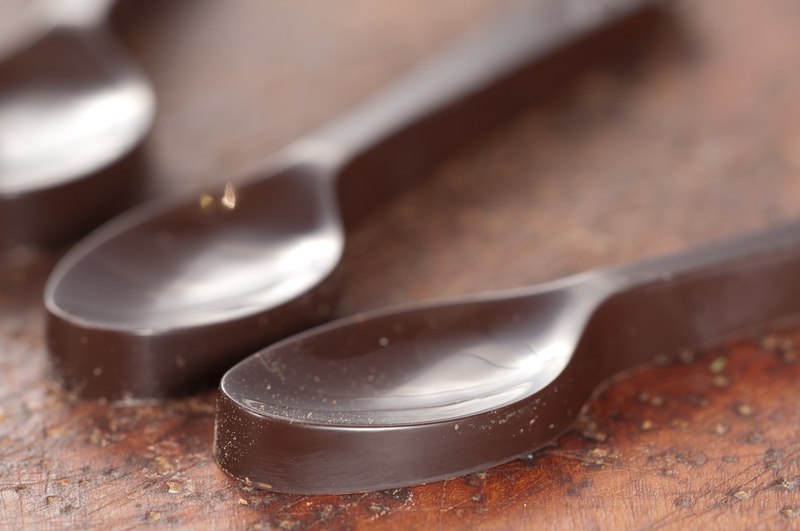How to Make Sure Your Old Pots and Pans Don't End Up in Landfills
Are you wondering what to do with old cookware? Disposing of old pots and pans can be troublesome, but sending them to landfills doesn't have to be the only option! With resourceful solutions and a little creativity, you can give your old pots and pans a new life. In this guide, you'll learn all the methods to ensure your worn-out cookware avoids the landfill--helping the environment and even your community in the process.
Why Shouldn't Pots and Pans Go to Landfills?
Most cookware, including pots and pans, is made from metal, plastic, or a combination of materials that take centuries to decompose. When tossed into landfills, they contribute to ever-growing waste problems, environmental pollution, and waste valuable resources that could otherwise be reused or recycled. By diverting cookware from the landfill, you are not only minimizing landfill overflow but also conserving resources and reducing environmental impact.
Environmental Impacts of Landfilled Cookware
- Landfill Overflow: Pots and pans are bulky and don't compact easily, consuming space meant for unrecyclable waste.
- Slow Decomposition: Metals and coated surfaces can remain in the environment for hundreds of years.
- Toxins and Contaminants: Nonstick pans or coated items can leach chemicals into the soil and water supply.
By consciously choosing alternative options, you can turn an environmental problem into a practical solution!

Easy Ways to Keep Your Old Pots and Pans Out of Landfills
1. Recycle Your Old Cookware
Can you recycle pots and pans? In most cases, yes--but not in your curbside bin! Most cookware contains valuable metals like aluminum or stainless steel, which can be recycled if delivered to the correct facility.
-
Metal Recycling Centers:
- Contact your local recycling center to see if they accept scrap metal.
- Remove non-metal parts like plastic handles if possible.
- Bring your items directly to a scrap metal yard or recycling depot.
-
Municipal Drop-offs:
- Some city waste management centers offer collection points for metal household goods.
- Check their guidelines, as some places require items to be clean and free of stuck-on food.
If your cookware is nonstick or contains Teflon, be sure to ask if these materials are accepted, as some centers consider them contaminants.
2. Donate Cookware Still in Usable Condition
Often, an old pan for you might be a treasure for someone else! Second-hand and thrift stores, charities, and community shelters are always in need of kitchen items.
- Goodwill & Salvation Army: Most locations accept gently used kitchenware.
- Local Charities & Shelters: Homeless shelters, food banks, and women's refuges regularly take donations.
- College Dorms & Community Centers: New students and low-income families are appreciative of donations.
Tip: Make sure to clean and sanitize your pots and pans before donating. Remove any broken or missing parts.
3. Repurpose or Upcycle Your Cookware
Why not get creative? Repurposing old pots and pans is satisfying and fun. Here are some innovative upcycling ideas to consider:
- Planters: Turn pots into quirky indoor or outdoor planters for herbs or flowers. Drill a drainage hole at the bottom for best results.
- Bird Baths and Feeders: Use wide, shallow pans for garden bird baths.
- Wall Decor: Attach old pan lids to a wall as artistic or functional hooks.
- Organizers: Use small saucepans as holders for office supplies, utensils, or craft gear.
- Candle Molds or Holders: Melt wax and pour into old pots to create large homemade candles.
- Clocks: Craft a wall clock from an old frying pan--simply attach a clock mechanism!
There are countless ways to breathe new life into old cookware, keeping them out of landfill and out of sight.
4. Give Away or Sell Your Old Pots and Pans
- Online Marketplaces: Post on sites like Facebook Marketplace, Craigslist, or OfferUp.
- Neighborhood Sharing Groups: Freecycle and Buy Nothing Project groups are dedicated to gifting unwanted items to people nearby.
- Garage Sales: A tried-and-true way to clear out clutter while helping someone in need.
Always include clear photos, accurate descriptions, and disclose any damage or wear. You'll be surprised how many home chefs, campers, or college students will eagerly take secondhand cookware!
Special Disposal of Nonstick, Teflon, and Coated Pots and Pans
Nonstick coatings such as Teflon present unique recycling challenges. They can't usually be recycled with standard metal goods due to their chemical content. However, you still have options:
- Manufacturer Take-back Programs: Some brands (GreenPan, Calphalon) offer recycling programs for their own cookware. Visit their website or contact customer support for instructions.
- Special Waste Events: Community hazardous waste events sometimes accept nonstick or coated pans for responsible disposal.
- Scrap Services: A few metal recyclers may accept nonstick if the coating is removed. Ask first!
Never burn or incinerate Teflon cookware--it can release toxic fumes.
Frequently Asked Questions About Pots and Pans Recycling
Q: Can you recycle pots and pans in your curbside recycling?
Usually, no. Most residential recycling programs do not process bulky cookware or mixed materials. Curbside bins are generally for cans, bottles, and simple plastics.
Q: What type of metal are pots and pans?
Most are aluminum or stainless steel, which are both highly recyclable if separated from coatings or plastic fittings.
Q: What if my pans are rusted or damaged?
If the pan is unusable, remove any non-metal parts and take it to a scrap metal facility. Even rusty metal is recyclable!
Q: What about cast iron pans?
*Cast iron* is extremely durable. Consider restoring or seasoning a rusty pan for further use. Damaged cast iron can also be recycled as scrap metal.
Best Practices for Donating or Recycling Cookware
- Clean thoroughly. Wash and dry completely before donating or recycling.
- Remove non-recyclable parts. Take off plastic or rubber handles if possible.
- Contact local facilities. Rules may vary for different kinds of materials and coatings.
- Sort by material type. Separate aluminum, steel, cast iron, and copper items if needed.
- Package securely. If reusing or donating, wrap sharp or heavy items to prevent injury during transport.
What to Avoid When Disposing of Old Cookware
- Don't put incompatible materials in curbside bins. This can contaminate recycling streams.
- Never dump cookware in nature. Metal and synthetic coatings can harm wildlife and soil.
- Don't burn nonstick cookware. Toxic fumes are dangerous indoors and out.
- Don't throw away unless absolutely no other options. There are almost always reuse or recycling choices available.
The Growing Movement: Circular Kitchenware Economy
As awareness of environmental issues grows, manufacturers and communities are embracing circular economy principles--keeping products in use longer and recovering resources at end of life.
- Buy Recycled or Recyclable Cookware: Brands like GreenPan, Made In Cookware, and even IKEA offer lines designed for easy recycling.
- Manufacturer Take-Back: Many companies will accept old products for recycling or responsible disposal.
- Cookware Rental and Sharing: Co-ops and rental programs for infrequently used items reduce overall production and waste.
By choosing products with end-of-life in mind--and supporting companies with strong environmental policies--you are helping reshape the future of kitchen waste.

Conclusion: Every Pan Makes a Difference!
Millions of old pots and pans are discarded annually, but most don't belong in a landfill. Whether you recycle, donate, upcycle, or share, your efforts reduce waste, support a sustainable future, and can even help those in need.
The next time you upgrade your kitchen tools, think about where your old ones will go. With a bit of knowledge and creativity, you can ensure your old cookware enjoys a second life--and keeps your community, and the planet, a little cleaner.
Additional Resources for Sustainable Cookware Disposal
- Earth911 Recycling Directory - Find local recycling drop-off locations: search.earth911.com
- Buy Nothing Project - Connect with local groups for free gifting: buynothingproject.org
- Tips on Upcycling Old Pans: Upcycle That
Start today--keep your old pots and pans out of landfills!
